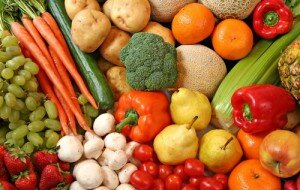 What is your attitude toward food? Are you eating to sustain your health, to increase your antioxidant network, to fuel your body, to maintain your metabolism and provide your body with optimal regenerative tools? Or are you eating out of habit, craving or convenience? We’ve become a society of conveniences and our eating habits tend to top that list. Prepackaged, processed foods are easy, the marketing is abundant and the addiction factor is high.
What is your attitude toward food? Are you eating to sustain your health, to increase your antioxidant network, to fuel your body, to maintain your metabolism and provide your body with optimal regenerative tools? Or are you eating out of habit, craving or convenience? We’ve become a society of conveniences and our eating habits tend to top that list. Prepackaged, processed foods are easy, the marketing is abundant and the addiction factor is high.
When considering a change to your diet you are faced with “No GMO’s”, “All Natural”, “No Artificial Ingredients”, “Organic”…these and other labeling issues can be confusing and somewhat worrisome. It’s not our grandmother’s time and we don’t tend to spend hours in the kitchen working on three meals a day with vegetables straight from our gardens. Preparation time, cost and management of ingredients and making a dietary change are going to take some planning and work. We do need to understand that food is a source of nourishment for our bodies. Our brains, systems, organs and structure need certain vitamins and minerals to perform at optimal levels. When we fill our system with foods that are of no nutritional value we starve the function of cells to combat disease, regeneration potential and the ability to keep us living a healthy lifestyle.
We wonder why we are tired, moody, sick or even worse. Ever heard the term “good in, good out”? Take a break from the unhealthy choices and do something significant for yourself. Consider altering your menu. Start small. Try making a few changes along the way and you can ease into a better lifestyle that can increase your overall health.
Keep in mind, natural and organic are not the same. Organic typically refers to foods with NO synthetic fertilizers, NO genetically modified organisms, NO growth hormones, NO antibiotics and a few other restrictions on the way it is grown/prepared. “Natural” is a label with no formal definition/regulation. “Made with real fruit”…and other common phrases tell you right away that there is likely some other ingredient than the one listed.
Consider the option of preparing your food yourself. By doing so you know what has been included and how it was cooked. Add more whole foods to your diet, swap out some processed cooking ingredients with more healthy options (sugars, flour, etc.) and think about fuel for your body. You do not have to break the bank or dump everything in the pantry and refrigerator. As you run out of something, replace it will a more nutritional option. Make better choices, be consistent and you might just discover that you feel better, look better and live longer.




















No Responses to “Food: Is it nourishing your body or killing you?”